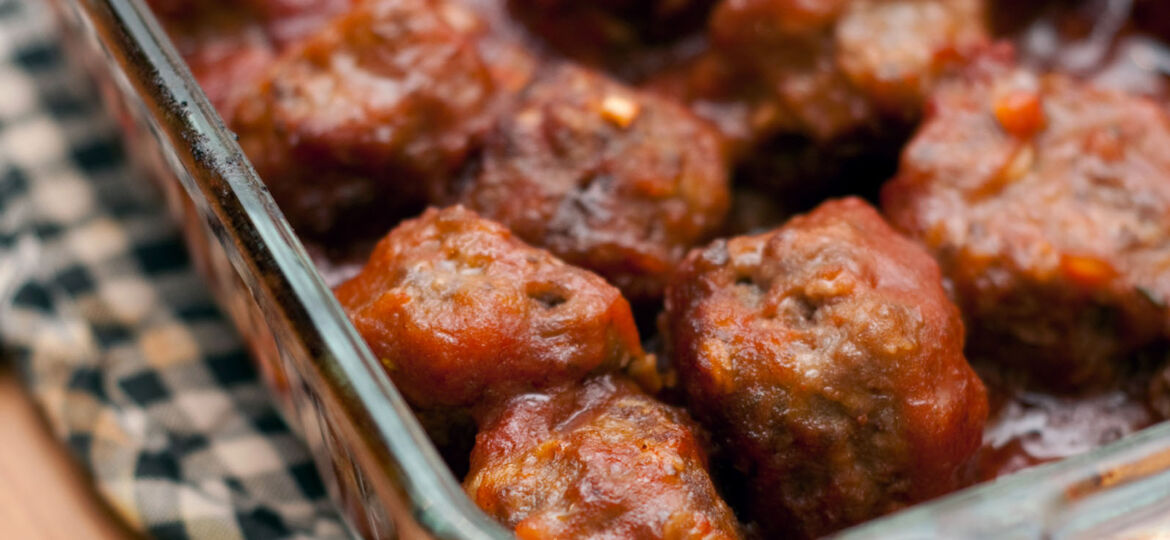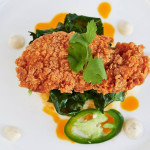
WHY THIS MATTERS IN BRIEF
Setting side huge areas of the earth to raise animals is wasteful and environmentally costly, but all of that might soon move into a lab.
If you thought that your children will enjoy the same family roast that you’ve always enjoyed then it might be time to think again. Hot on the heels of the US Food and Drug Administration announcing that it’s willing to let companies in the US sell lab produced meat Memphis Meats is one of a new breed of companies who are jumping on the bandwagon to produce the first consumer grade lab produced meats that doesn’t involve killing, or rearing, any animals.
Known as “clean meat,” where animal cells are cultured and fed nutrients in a bioreactor in a lab for around 21 days until they’re large enough to be cooked and eaten, last year they grew beef, and even made a meatball. And if you thought the new food revolution ended there then last year a company called Food Ink in London opened a pop-up restaurant where all the food, and even the furniture was all 3D printed – food isn’t what it used to be.
Now, Memphis Meats have turned their attention to poultry and they’ve just claimed they’ve produced the world’s first animal-free, lab-grown pieces of chicken and duck. The resulting chunks of alterna-flesh have so far been crafted into two dishes: a crispy fried chicken strip and duck à l’orange.
The upshot of all this of course is that if they, and others in their field, can scale this technology up then the carnivores among us could satisfy our desires for animal flavoured proteins without ever having to cook up a real chicken ever again. And that’s to say nothing about the potential benefits to the environment, or the billions of livestock that are slaughtered each year – feel free to debate, I’m not going there. Given the right conditions, a few cells could turn into billions of chicken strips.
The obvious question on many people’s minds though are undoubtedly going to be is it safe – well, here the FDA are weighing in so watch this space – and what does it taste like? According to reports from people who’ve tasted it it’s “spongier than a whole chicken breast” but it “nearly nailed the flavour of the traditional variety” and they’d eat it again. All of which are good signs of progress.
So, will we see it on the supermarket shelves this summer? Well, no. For one thing it’s still $9,000 per pound, and while Eric Schmidt, Google’s chairman reportedly splashed out $250,000 to taste the first lab grown burger back in 2015 most of us don’t have that kind of cash, but even at $9,000 per pound that’s still half the cost that it was last year and one day we’ll figure out how to scale this up cost effectively.
In fact, Paul Mozdziak, a North Carolina State University professor in the business of making lab-grown turkey, pointed out that it could theoretically prove more economical than rearing animals, because there’s no extraneous bone or feather or brain to grow – all the energy and nutrients could go into producing pure meat, and that’s nothing to say about the cost of rearing, or looking after the animals. And furthermore, as if revolutionising farming with lab grown meat wasn’t enough there’d be no reason why these new production methods couldn’t be incorporated alongside, or inside vertical farms – another agricultural revolution in the making.
Funnily enough Memphis Meats agrees and it says that it should be able to drive the cost down fast enough to put its products up for sale to a hungry public some time in 2021, and if that happens then the only thing you’ll get guilty about is the number of calories – but over time who knows, we might produce a lean chicken, and then it’ll time to stock up on that BBQ sauce.



















[…] Source link […]
[…] It’s a sad day for Spongebob, and fry cooks everywhere, and who knows one day Flippy could find itself cooking lab grown burgers… […]
[…] Image […]
[…] the nacent tissue grows to the point where it can be cooked and eaten, and voila, on demand beef, chicken, duck, salmon and tuna without an animal or fish in sight, from companies including Aleph […]